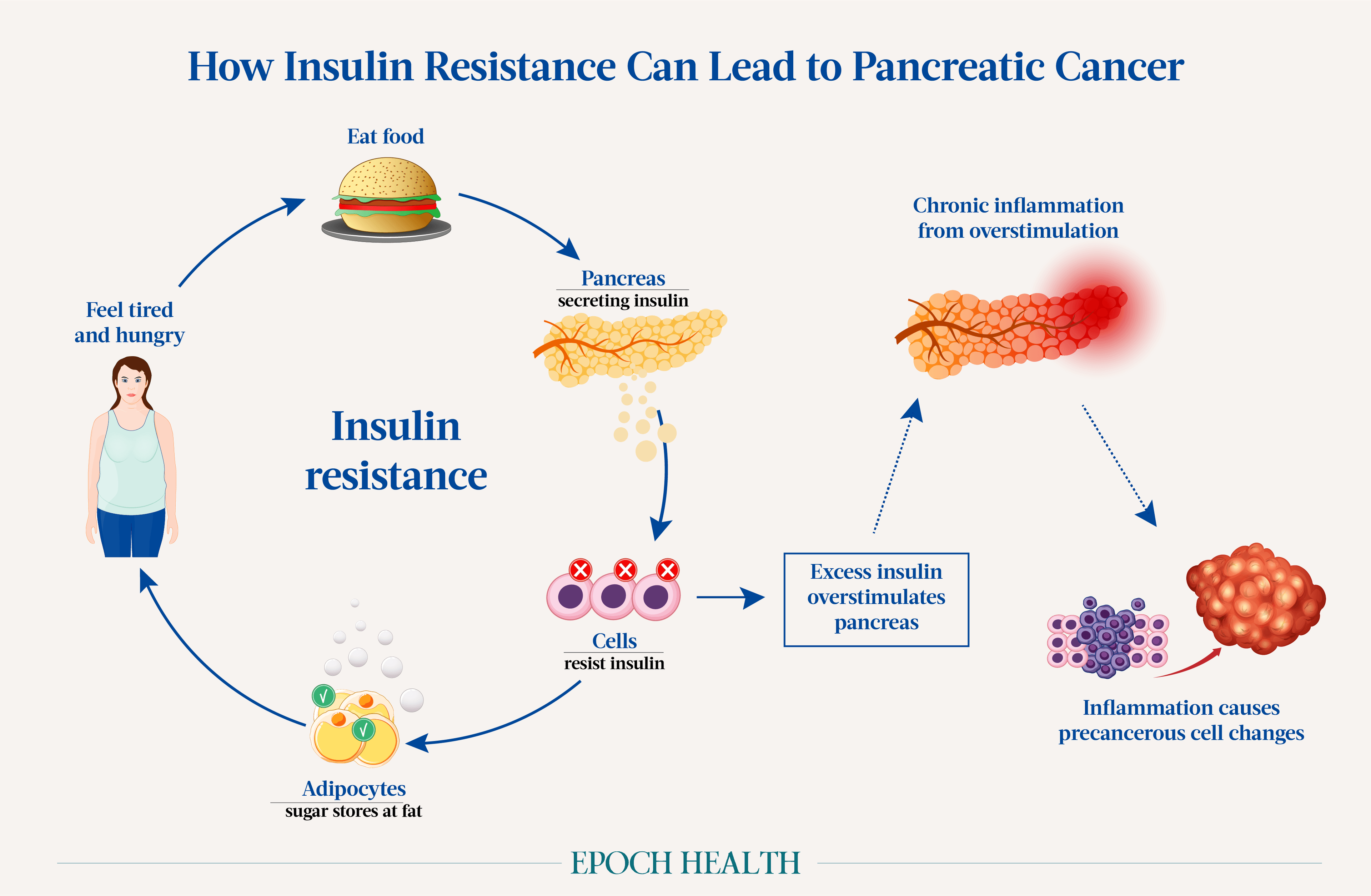Insulin Resistance Is a Silent Driver of Pancreatic Cancer: Study
New research suggests a link between elevated insulin, linked to poor diet and obesity, and the development of pancreatic cancer, which is the third leading cause of cancer deaths in the United States.
How Elevated Insulin Causes Pancreatic Cancer
Insulin resistance is a condition where the body’s cells do not respond effectively to insulin, leading to elevated blood sugar levels and potentially causing type 2 diabetes. |
| How insulin resistance may contribute to the development of cancer. (Illustration by The Epoch Times, Shutterstock) |
“Our data shows that the higher risk of pancreatic cancer associated with poor diet and obesity may be due to the higher levels of insulin associated with these conditions,” they added. It also suggests lowering insulin through medication, diet, or exercise could prevent pancreatic cancer.
This study reveals insulin’s role in pancreatic cancer initiation, Dr. Emily Gallagher, assistant professor in the Division of Endocrinology, Diabetes, and Bone Disease at the Mount Sinai Health System, told The Epoch Times.
“It shows the importance of the insulin receptor in regulating digestive enzyme production and inflammation in the pancreas,” she said, noting that an important question is how this information could be used to reduce the risk of pancreatic cancer in people with high insulin levels.
How Insulin May Fuel Cancer Cell Growth
Elevated insulin, or hyperinsulinemia, occurs when insulin levels exceed the normal range. It occurs when the body becomes insulin resistant—the cells in our muscles, fat, and liver cease responding normally to insulin.
Beyond pancreatic cancer, high insulin links to colorectal, breast, endometrial, liver, ovarian, and gastric cancers, said Dr. Gallagher.
With rising obesity and diabetes worldwide and the realization that hyperinsulinemia may contribute to treatment failures, understanding insulin signaling in cancer progression is critical, according to the review.
Unlike normal cells, cancer cells rely on glucose as their primary energy source and cannot metabolize fats. Restricting glucose intake through diet can help starve and eliminate cancer cells.
Controlling Blood Sugar Levels Is Key
High insulin can predate high blood sugar and diabetes by years, Dr. Gallagher said. “Therefore, people who have metabolic syndrome, obesity, or prediabetes are at a greater risk of developing cancer due to the higher insulin levels, even in the absence of high blood glucose,” she said.Strategies that reduce circulating insulin may also cut cancer risk. Diet, exercise, weight loss—all can help lower insulin levels.




.png)



Comments
Post a Comment